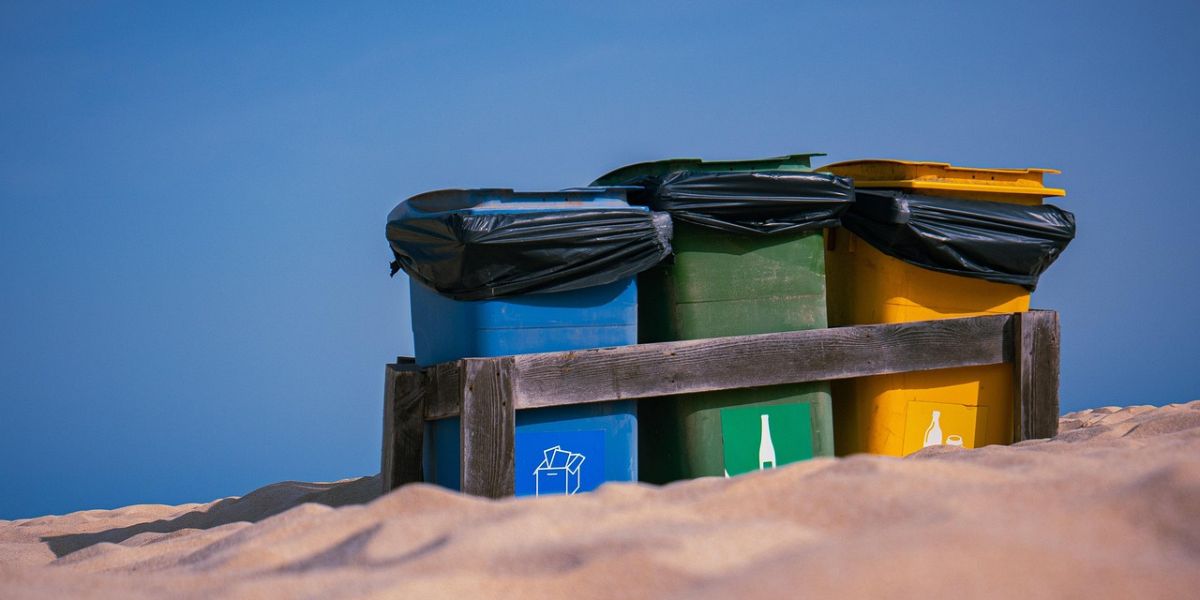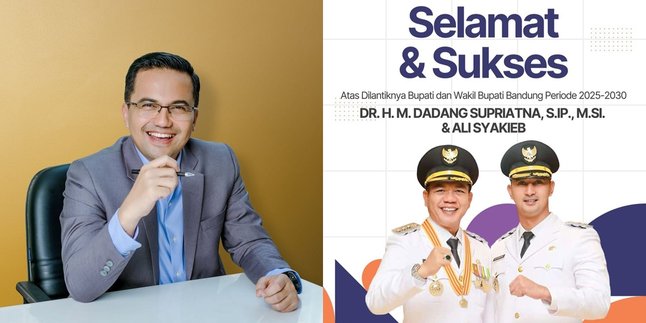Kapanlagi.com - Every year, on February 21, Indonesia celebrates National Waste Care Day (HPSN) as a call to raise public awareness about the increasingly urgent waste problem. This commemoration is not just a formality but also a moment of reflection on the tragedies that have occurred due to poor waste management.
One of the most heartbreaking events was the landslide of garbage at the Leuwigajah Final Disposal Site (TPA) in West Java on February 21, 2005. This tragedy became a turning point that awakened public awareness of the importance of better waste management. More than just material loss, this incident claimed over 150 lives due to negligence in domestic waste management.
As time goes by, National Waste Care Day has become an important moment to strengthen the commitment between the government and society in addressing waste issues. In 2025, this commemoration will again carry a special theme highlighting the importance of collaboration in creating a clean and healthy environment. Here is the information, summarized by Kapanlagi.com, Friday (21/2).
1. History of National Waste Care Day: Born from the Leuwigajah Landfill Tragedy 2005
National Waste Care Day (HPSN), commemorated every February 21, was born from a heartbreaking tragedy at the Leuwigajah landfill in Cimahi, West Java, in 2005. In that incident, a landslide of waste caused by heavy rainfall and a methane gas explosion claimed the lives of more than 150 people, destroying two villages in an instant.
This event serves as a reflection of how important proper waste management is, as the accumulation of waste without adequate systems has created a disaster that took lives.
Since then, the government has established this date as a reminder for all of us about our responsibility to manage waste sustainably, so that similar tragedies do not occur in the future.
"The history of the origin of HPSN, commemorated on February 21, began with the Ministry of Environment declaring for the first time, to commemorate the events in Leuwigajah, Cimahi, West Java, on February 21, 2005," the page states.
2. The Purpose and Meaning of National Waste Care Day
National Waste Care Day is not just about commemorating the tragedy at the Leuwigajah landfill, but it also has several important objectives aimed at increasing awareness and collective responsibility in waste management in Indonesia.
- First, HPSN aims to strengthen the commitment of local and national governments in creating a better waste management system through policies that support a circular economy, where waste can be reused as a resource with economic value.
- Second, this commemoration also invites the community to actively participate in reducing waste production, sorting waste at home, and supporting the zero emissions movement by more effectively reusing organic and inorganic waste.
- Third, HPSN serves as an important moment for producers and industry players to implement green business principles, using waste as raw material for recycling to reduce dependence on raw materials that can have adverse effects on the environment.
- Fourth, building a waste management value chain across all sectors.
"In HPSN 2025, there are eight action locations for national waste care. These eight locations are beaches, mountains, mangrove areas, villages, pesantren (Islamic boarding schools), markets, schools, and campuses," wrote the website dml.or.id.
3. National Waste Care Day Theme 2025
Every year, National Waste Care Day (HPSN) carries a different theme, and for 2025, the chosen theme is "Collaboration for a Clean Indonesia".
This theme underscores the importance of synergy between the government, the business sector, and the community in building a more integrated and effective waste management system, for the creation of a healthy and sustainable environment.
Through this initiative, the government also aims to encourage innovation in waste management, providing opportunities for various sectors to develop environmentally friendly technologies capable of addressing waste issues in a more modern and efficient manner.
4. Activities Held During HPSN 2025
In the spirit of welcoming National Waste Care Day, the government will hold a series of interesting activities throughout February 2025 involving all layers of society.
The highlight will be National Waste Care Month, where various educational events such as seminars, workshops, and environmental campaigns will be held to raise public awareness about the importance of sorting and recycling everyday waste.
Moreover, eight strategic locations—from beaches to campuses—will become centers for waste care actions, with clean-up activities and awareness-raising on waste management reaching more people.
5. Challenges and Hopes in National Waste Management
Although waste management efforts in Indonesia continue to evolve, the country still faces significant challenges that threaten environmental sustainability.
One of the main obstacles is the low public awareness in sorting waste from the outset, which leads to a mix of organic and inorganic household waste. This certainly complicates the recycling process and further waste processing.
However, with support from various parties and increased education about the importance of sustainable waste management, there is a bright hope that Indonesia can become more self-sufficient in addressing waste issues, as well as creating a cleaner and healthier environment for future generations.
6. FAQ
1. Why is National Waste Care Day commemorated every February 21?
This date was chosen to commemorate the tragedy of the landslide of garbage mounds at the Leuwigajah landfill in Cimahi on February 21, 2005.
2. What is the theme of National Waste Care Day 2025?
The theme for HPSN 2025 is “Collaboration for a Clean Indonesia,” emphasizing the importance of cooperation in addressing waste issues.
3. What are the main activities in HPSN 2025?
Some of the main activities include educational campaigns, clean-up programs in eight key locations, and seminars on the circular economy.
(kpl/rmt)
Disclaimer: This translation from Bahasa Indonesia to English has been generated by Artificial Intelligence.












